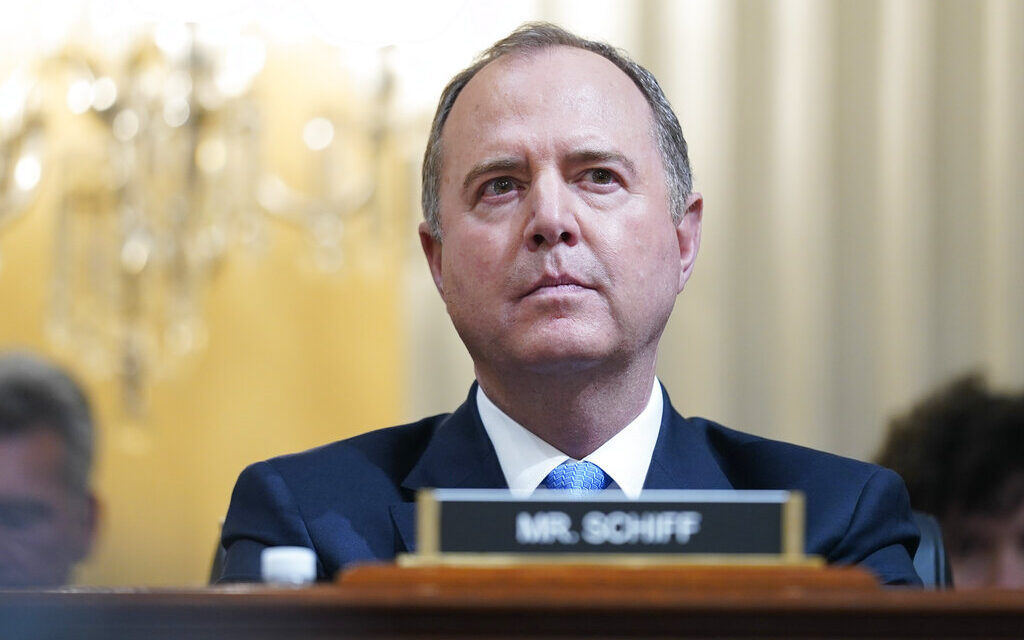
In California’s Senate primary, Congresswoman Barbara Lee is picking a fight with Governor Newsom, while Congressman Adam Schiff and Congresswoman Katie Porter are locked in a close race.
On Sunday, Mr. Newsom said he wouldn’t appoint anyone currently running in the race to succeed Senator Feinstein were she to step down before completing her term. When asked by NBC’s Chuck Todd if he would be appointing what Mr. Todd described as a “caretaker,” Mr. Newsom said, “we hope we never have to make that decision.”
“I abide by what I’ve said very publicly on a consistent basis,” he said.
What Mr. Newsom has said publicly is that he plans to appoint a Black woman to the office if Ms. Feinstein decides to step down. Ms. Feinstein has said she plans to finish out her term, which ends in January 2025.
Mr. Newsom’s promise sparked speculation that one of two Black women in California’s congressional delegation alongside Congresswoman Maxine Waters, Ms. Lee, might be appointed, a development that would give her a distinct advantage in the race.
In response to Mr. Newsom’s remarks, Ms. Lee said she was “troubled,” saying, “The idea that a Black woman should be appointed only as a caretaker to simply check a box is insulting to countless Black women across this country who have carried the Democratic Party to victory election after election.”
“There are currently no Black women serving in the Senate. Since 1789, there have only been two Black woman senators, who have served a total of 10 years,” Ms. Lee said. “The perspective of Black women in the U.S. Senate is sorely needed — and needed for more than a few months.”
In response to Ms. Lee’s comments, Mr. Newsom’s senior advisor on communications and strategy, Anthony York, tells the Sun that the disputed issue is “hypothetical on top of a hypothetical.”
“There is no vacancy for any U.S. Senate seat, nor does the governor anticipate there will be one,” Mr. York says. “Voters will have their say on who should replace Senator Feinstein when they go to the polls less than six months from now.”
While Ms. Feinstein publicly maintains that she plans to finish her term, she has given her daughter, Katherine Feinstein, power of attorney, raising concerns about her ability to serve in the Senate, an issue first raised by her months-long absence earlier this year due to shingles.
The move to cede power of attorney to her daughter appears to be in the hopes of letting the younger Ms. Feinstein manage a legal dispute between Ms. Feinstein and her daughter and the children of Ms. Feinstein’s late husband, Richard Blum.
While Ms. Feinstein’s office has declined to comment on the private legal issue, it compounds the challenges Ms. Feinstein is facing as she finishes out her term in the Senate and has fueled speculation of an early retirement.
The backdrop to the hypothetical appointment dispute between Mr. Newsom and Ms. Lee is the upcoming California Senate primary on March 5. Although the general election isn’t until November, candidates need to place either first or second to appear on the ballot in November.
California uses a nonpartisan primary system, meaning all candidates run in the same field for the primary, and the top two vote-getters move on to run in a one-on-one general election.
Ms. Lee, if she wants to advance to the general election, needs to find a way to boost her poll numbers, according to a recent survey by the Berkeley Institute of Governmental Studies.
The survey found that Mr. Schiff leads with 20 percent support in the primary and is in a tight race with Ms. Porter, who is at 17 percent. Ms. Lee is tied with the top two Republican candidates, Steve Garvey and James Bradley, at 7 percent support.
“Lee’s support is strongest among strong liberals, Black voters, LGBTQ voters, and those living in the nine-county San Francisco Bay, where her congressional district is located,” the Berkeley pollster wrote. “Schiff’s vote is derived from larger levels of support from Democrats, liberals, Black voters, and those ages 65 or older.”
The pollster added that Ms. Porter draws most of her support from “liberals, especially those identifying themselves as strongly liberal,” as well as younger voters.
Another factor in the race, and one that has been elevated because Ms. Feinstein, at 90, is the oldest member of the Senate, is the age of the candidates to replace her.
Mr. Schiff is 63 years old, Ms. Porter is 49, and Ms. Lee is 77. Although no one has questioned the fitness of any of the candidates to serve, being the oldest candidate in the field likely creates an issue of optics for Ms. Lee.
The issue has already been raised in the pages of Los Angeles Times, and it’s clear from the Times’s reporting that some in the Democratic coalition are already thinking about the issue. The issue could become doubly potent in an election when the age and fitness of candidates are at the top of mind for many voters, especially Democrats.




